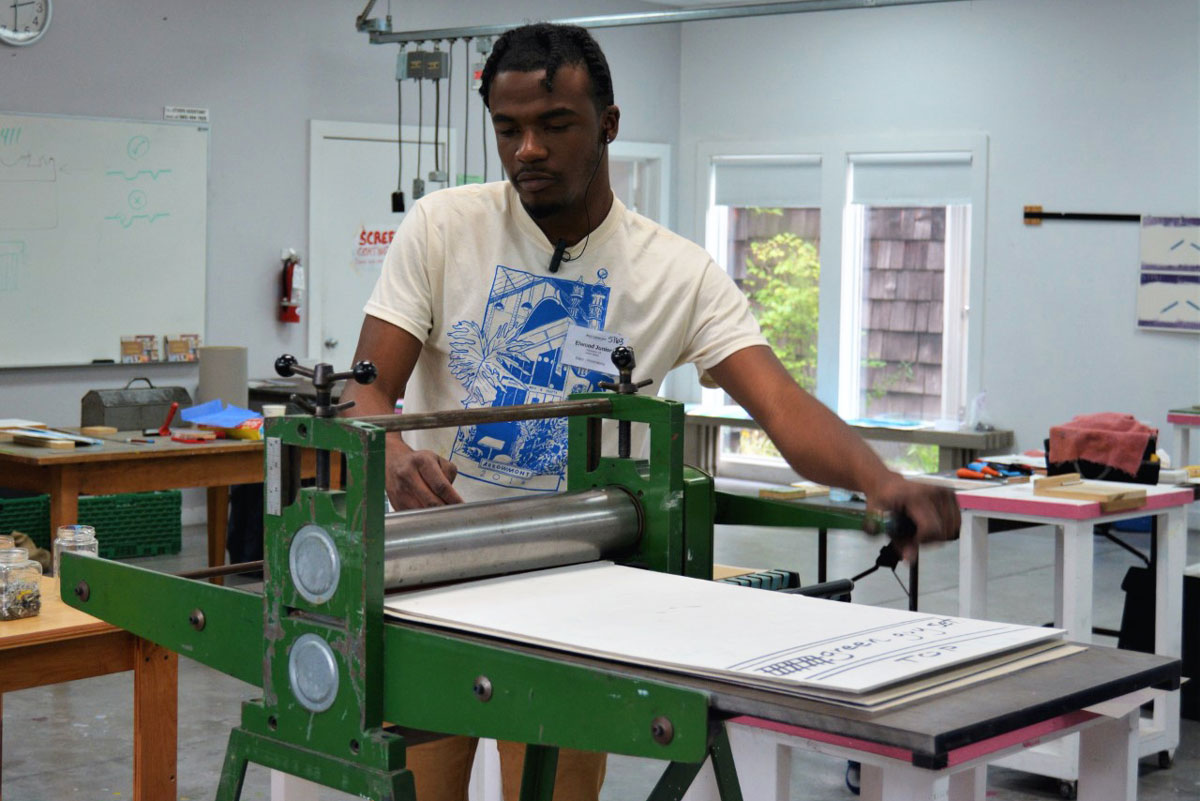Between July 20 and 22, 2021, the Center’s African American Craft Initiative (AACI) will host its first virtual Craft Institution Consortium. The consortium will gather national craft organizations, museums, galleries, and funding organizations to address how they can better include African American makers and craft artists in their diversity, equity, accessibility, and inclusion efforts. Building on the May 2021 African American Craft Organization Think Tank, the consortium will continue the initiative’s mission to increase public awareness, networks, and institutional support for African American makers on a national and international scale.
Led by initiative curator and founder Dr. Diana Baird N’Diaye, the consortium continues AACI’s work as part of the Center’s Cultural Sustainability and Artisan Initiative. Though institutionally focused, the consortium will follow a similar structure to the initiative’s Think Tank and October 2020 Makers Summit: five meetings of ten to fifteen participants each, taking place over three days. The meetings are open to museums, galleries, funding and craft organizations by invitation.
N’Diaye hopes that museums and organizations across the country can commit to documenting, learning about, presenting, and archiving African American craft.
“We need to make sure that we tell African American stories,” she says. “This consortium will allow organizations to explore the ways in which they can address the needs of the African American craft community, utilizing recommendations and key themes presented by African American makers and organizations.”
During the upcoming sessions, organizations will be asked to begin setting priorities for addressing concerns African American makers and organizations identified in the prior digital convenings. As Mandisa Smith, director of AKOMA Detroit, noted, opportunities for residencies, exhibitions, and education are all important, but financial resources are key to the promotion and growth of the African American craft community.
As the third virtual gathering of AACI, the consortium is a decisive step toward developing community partnerships and initiating organizationally driven activities. In the coming year, we look forward to working across AACI’s network to continue nurturing and building relationships and creating and facilitating public programs, convenings, workshops, media projects, and exchanges with partner organizations.
For inquiries, please contact AACI at AfricanAmericanCraftInitiative@si.edu. You can also sign up to receive the AACI monthly makers bulletin.
About the Smithsonian Artisan Initiative
The Smithsonian Artisan Initiative aims to reposition artisans as leaders of the creative economy by providing the knowledge, skills, and support necessary to revive and sustain their communities’ craft traditions. Dedicated to building the sustainability of traditional knowledge and cultural expression, the program brings together community-driven research and documentation, product design and development, enterprise training, and a suite of tools artisans can use to unlock access to markets.
About the Cultural Sustainability Program
At the Center for Folklife and Cultural Heritage, we acknowledge a significant and accelerating decline in cultural vitality. While globalization connects us in new ways, it also threatens the world’s cultural diversity. Social, economic, and political forces—like urbanization, oppression, war, genocide, climate change, and mass production of culture—pressure traditional cultures to assimilate. In the face of these challenges, communities persist in preserving and practicing their living cultural heritage. Our Cultural Sustainability program works with communities to bolster these efforts.


